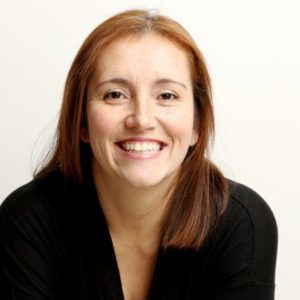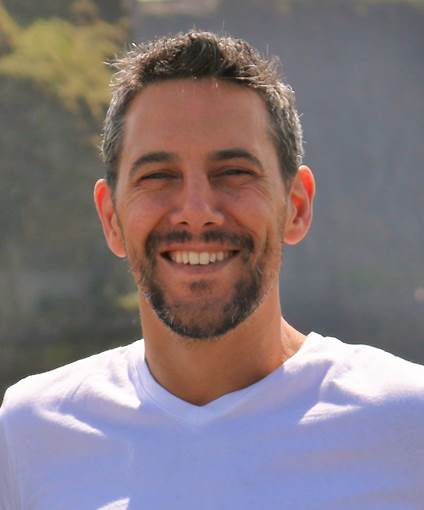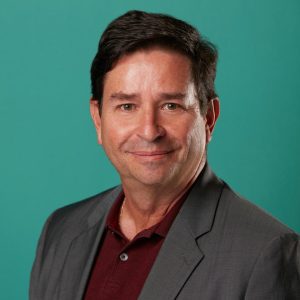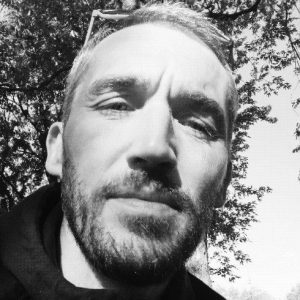Student Portraits
September 1, 2021
Interview with 4 researchers from the IVADO community
Liliana Perez
Université de Montréal

What are your research interests?
I am an Associate Professor in the Department of Geography at the University of Montreal. Both my research and teaching experiences are rooted in the theories and practices of geographical information science (GIScience) and complex systems science (CSS), particularly in the areas of GeoComputation and GeoSimulation. My research focuses on the incorporation of artificial intelligence (AI) and machine learning (ML) techniques into the development of Agent-Based Models (ABM) to solve complex socio-ecological problems in different kind of systems, such as urban, forest and wetland ecosystems. I am motivated by a broad range of questions that span multiple disciplines, including landscape ecology, land use cover and change (LUCC) and forestry. I study a variety of different ecosystems from boreal forests and wetlands, tropical wetlands and paramos to Patagonian fjords, and at scales ranging from individual trees to the regional landscapes.
Expertise: Agent-based modelling, GIScience, Complex socio-environmental systems, Forestry, Ecology
A fun fact about you and/or your motto?
I love the mountains and the forest and I never get tired of hiking. Actually, I have two mottos, both inspired by the same man, Albert Einstein. “The measure of intelligence is the ability to change” and “A person who never made a mistake never tried anything new”. That is why I truly appreciate the diversity and adaptability of all the members in my research lab.
What would be your ideal collaborative research project?
As a geographer and a modeller, I have had the opportunity and am very keen to work with researchers having varied expertise, such as biologists, geologists, anthropologists, archeologists, epidemiologists, transportation engineers, and the list goes on. Nevertheless, I think that the ideal collaborative research should not only involve a multidisciplinary team, but also a variety of stakeholders and decision makers. Just to give an example, if you want to develop a sustainable management plan of endemic species, you need to understand the point of view of the communities and the importance of the resources and how they use them; you need to work with government agencies to guide them towards a participative planning program that allows everyone to reach their goals with the help of science.
How could the fields of animal health and human health be useful to you in your research?
It is not surprising that both animal health and human health could be affected and depend on natural and built environments, therefore identifying animal and human health problems in a complex system that could help us determine the environmental drivers of the emerging patterns and spatial distribution of animal and human populations experiencing specific health issues in relation to their habitat.
Simon Dufour
Université de Montréal

What are your research interests?
My expertise is in the epidemiology of infectious diseases of production animals, mainly dairy cows. I am particularly interested in the validation of diagnostic tests using Bayesian methods, but also in animal disease surveillance and antimicrobial use in the dairy industry. For this, I regularly use large databases generated by animal owners and veterinarians. I also use proteomic data to better describe the bacterial isolates we obtain from various animal samples and their environment.
A fun fact about you and/or your motto?
A fun fact? At work, I am often in the field!
My motto? It’s more of a quote, but I couldn’t find the original author: There are 3 kinds of epidemiologists; those who can count and those who cannot.
What would be your ideal collaborative research project?
I like projects that are at the border of several disciplines and, therefore, often at the border of what is feasible with current knowledge. Ideally, this would involve:
- one or more large databases, but with challenges in assembly and cleaning;
- enthusiastic colleagues from a variety of disciplines (microbiology, epidemiology, clinical sciences, data sciences)
- a “translation” of the final results into something concrete and tangible for the users of our research
- a project that responds to a real societal need.
How could the fields of human health and the environment be useful to you in your research?
The impacts of our interventions in animal production have direct impacts on human health and their environment. Whether it is by improving the nutritional qualities of food, by food safety, but also by the prevention of zoonoses (diseases transmissible from animals to humans). Antibiotic resistance is another field of research where animal health, human health and ecosystem health are very closely linked. Without a formal assessment of the impacts of our animal health interventions on human and ecosystem health, we can only provide a partial and possibly biased picture of the quality of these interventions.
Jacques Corbeil
Université de Montréal
 What are your research interests?
What are your research interests?
I am interested in a little bit of everything. I love technology and microorganisms and this is the leitmotif and guiding principle of my research.
A fun fact about you and/or your motto?
I love to sail. I have Australian and Canadian nationalities. I am impatient, but accommodating. Show me someone who doesn’t make mistakes and I’ll show you someone who doesn’t do much.
What would be your ideal collaborative research project?
There are two that interest me. Obviously, the “One health” approach for antibiotic resistance. I have two other funded projects in the field, one with an international team from France, Finland and China and the other on the environmental dissemination of resistance with Caroline Duchaîne. The other project that is in development is to make a Cancer App. To make a real social application for cancer patients. It is terribly lacking in the arsenal for the fight against cancer.
How could the fields of animal health and the environment be useful to you in your research?
I hope to assist in the creation of vaccines and antibodies to fight infectious diseases in animals and thus reduce the use of antibiotics and antivirals in agriculture and for our pets.
Yves Terrat
Université de Montréal
 What are your research interests?
What are your research interests?
I am a microbiologist and bioinformatician by training. Having worked for more than 10 years in this field, I have a particular interest in microorganisms, their impact on human and animal health and the use of high-throughput screening methods to understand their functioning. The study of human microbiomes, i.e. all the microorganisms that populate us, will certainly revolutionize our approach to health in the coming years. You probably know that several hundreds of different microorganisms colonize you since your first minutes of life. They represent a few kilograms (> 30 billion billion cells). The interaction with these microorganisms is essential for the development of the immune system, the production of certain vitamins, the degradation of certain types of fiber, etc. There is also a link between the composition of the microbiome and many diseases (metabolic, inflammatory and even mental), although the causal relationship is not always established. This is an absolutely fascinating subject. We are not as human as we think…
I am also interested in the digital transition in the field of health and in particular in the use of artificial intelligence for diagnostic purposes. There are major technical, ethical and social acceptance issues.
A “fun fact” about you and/or your motto?
Bioinformaticians and other data scientists are, in essence, very humourless people. I wrote my thesis and analyzed my data sets on a computer with 128 MB of RAM and a few gigabytes of storage capacity. All shared between three people. Those were the good old days.
What would be your ideal collaborative research project?
An ideal project is first of all an “ideal” subject. Even though I spent most of my career in basic research, I am now committed to participating in more applied research projects. From my point of view, this is a project that will have a significant societal impact. With IVADO (Barbara Decelle) and the UdeM innovation laboratory (Manon Boiteux), we are working, for example, on a transdisciplinary project on antibiotic resistance, which is already a major problem throughout the world and will increase dramatically in the coming decades. There is an urgent need to mobilize researchers around this topic.
An ideal project is also an “ideal” team. I have the privilege of working in a perfect context in this regard: people listen to each other, the work atmosphere is extremely benevolent and the team is diverse. A great community of people who walk the talk.
How could the fields of animal health and the environment be useful to you in your research?
The project on antibiotic resistance that we are currently working on is a perfect illustration of the interest of this transdisciplinary approach called “One Health”. We could only work on the human health aspect because there is an obvious problem in the prescription of these molecules by doctors. This is probably the most urgent work. We can also work on the development of new molecules. This is absolutely necessary, but it is a long and costly process. When we realize that a very significant part of antibiotics is used in animal husbandry and that molecules are “carried” into our environment from these sources, it is clear that focusing only on human health is not a complete solution to this problem. It is therefore essential to have researchers from different departments working on this project in a holistic approach.